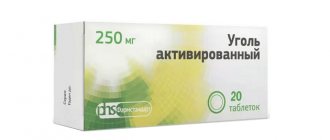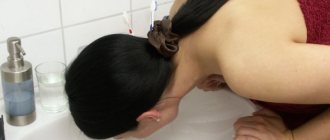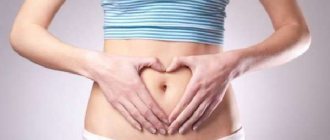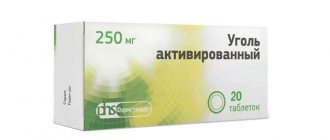Food poisoning is a pathological condition that occurs as a result of consuming low-quality, spoiled foods contaminated with pathogenic microorganisms and their waste products. The disease is not contagious, which means it is not transmitted from one person to another.
Most often, poisoning is caused by bacteria of the E. coli group, clostridia, staphylococci and salmonella.
Main symptoms of poisoning
When poisoned food enters the body, toxins enter the intestines, and from there through the mucous membrane they penetrate into the systemic bloodstream, causing clinical manifestations. The following symptoms are observed for food poisoning:
- Dyspeptic syndrome (nausea, vomiting, diarrhea).
- Weakness, malaise, decreased performance.
- Paleness of the skin.
- Increased heart rate and respiratory movements.
- Reduced blood pressure.
- Pain in the abdominal area.
- Increased body temperature.
In severe cases, the development of visual disturbances, the appearance of hallucinations and disturbances of consciousness (stupor, stupor, coma) are possible. If emergency assistance is not provided to the patient in such a situation, death is possible.
Bacterial causes of food poisoning
Food poisoning can be caused by a variety of bacteria.
Bacteria are tiny organisms that can cause digestive tract infections. Not all bacteria are harmful to humans.
Some harmful bacteria may be present in foods. Raw foods are often contaminated with bacteria, including meat, fish, seafood, eggs and unpasteurized milk. Fresh produce can also be contaminated with bacteria, but this happens less frequently.
First aid for poisoning
Providing emergency assistance for food poisoning is an extremely important event. This way you will cope with the disease faster and avoid complications.
Algorithm:
- Stomach cleansing. To do this, you need to drink a warm, weak solution of soda or potassium permanganate in a volume of 500 ml, and then induce vomiting. The procedure should be repeated until the wash water is clear.
- Taking sorbents (activated carbon, Filtrum) and enveloping drugs (Almagel).
- Drink plenty of fluids (clean water, warm tea, fruit infusions).
- Peace. The patient must be given a comfortable position in bed and ensure maximum comfort.
During the first day of illness, you should refrain from eating. Only drinking is allowed. Starting from the second day, you can start feeding the patient with vegetable soups and weak broths. When symptoms subside, the diet should be expanded, excluding fatty, smoked and salty foods from the menu. Carbonated drinks and coffee are also contraindicated.
How to choose anti-poisoning pills for adults
If the poisoning is severe or lasts more than a day without getting better, you should consult a doctor. A specialist can determine the causes of food poisoning and select anti-poisoning pills for adults. In case of severe symptoms, the following groups of drugs are used:
- antibiotics and intestinal antiseptics, if the microbial nature of the infection is proven;
- drugs to absorb toxins (activated carbon, Enterosgel, white coal, Smecta);
- means for normalizing intestinal motility (prokinetics) and antiemetics;
- solutions for oral rehydration (mixtures based on salts and glucose);
- probiotics and prebiotic preparations, synbiotics;
- additional drugs to eliminate symptoms (antipyretic, antidiarrheal).
Any medications and their combinations should be selected only by a doctor, excluding surgical diseases, dangerous conditions and complications.
Treatment
Treatment of food poisoning must be comprehensive. To do this, you must follow a strict diet and take the necessary medications. You can also turn to traditional methods.
Medications:
- Activated carbon (relieves symptoms of intoxication, relieves nausea).
- Enterosgel (adsorbs toxic substances and promotes their removal from the body).
- Rehydrog (a drug for preparing a water-salt solution necessary to combat dehydration).
- Linex (normalizes the functioning of intestinal microflora).
In severe cases, it is possible to take antibacterial drugs, but they must be prescribed by a specialist.
Folk remedies are also successfully used to treat food poisoning. The most commonly used decoctions are dill with honey, wormwood, marshmallow roots, yarrow, cinnamon tincture and ginger tea.
The diet involves fasting on the first day of illness. Then you should gradually introduce oatmeal in water, boiled, pureed vegetables, weak fish and meat broths, crackers, and lean meat into the diet. Drinks allowed include dried fruit compotes, herbal teas, jelly, fruit drinks, and boiled water.
Until complete recovery, you should exclude pickles, spices, fatty and fried foods, mushrooms, sweets and various sauces from your diet.
Treatment of intestinal infection: nothing more!
In summer, the problem of poisoning becomes more pressing than ever - the heat creates favorable conditions for the proliferation of pathogens. What medications really help get out of an unpleasant condition with minimal consequences?
To have a clear idea of how medications work (or don’t work) in case of poisoning, you need to understand what happens to the poisoned body. In the vast majority of cases, bacteria, and even more so parasites, have absolutely nothing to do with it!
Basically, intestinal infection develops against the background of infection with viruses: they are responsible for 70% of cases of infectious diarrhea in children and almost 90% in adults.
The penetration of intestinal pathogens into the body is accompanied by the release of a large amount of toxins, which cause characteristic symptoms. In this case, the mucous membrane of the stomach and intestines becomes inflamed - gastroenteritis develops.
However, despite the sometimes painful manifestations of poisoning, its causative agents are doomed: all intestinal infections are self-limiting, that is, the bacteria or viruses that caused them die not because they are affected by drugs, but because this is how nature intended. In this regard, almost any intestinal infection is akin to ARVI - treat it, don’t treat it, but you will still recover no earlier than the pathogen reaches the end of its development. And, fortunately, his life is short-lived: within 1–7 days after the manifestation of the disease, as a rule, recovery occurs.
We are used to swallowing handfuls of pills with or without reason. In case of poisoning, including. But not all drugs that we consider irreplaceable and vital are really needed. Let's remember everyone by name.
Regulators of water and electrolyte balance
The drugs in this group head the short list of drugs that are really necessary for poisoning. These include combinations of dextrose, potassium and sodium chloride, sodium citrate (Regidron, Trihydron, Hydrovit).
Diarrhea and vomiting, the main companions of intestinal infection, contribute to fluid loss and disruption of the acid-base balance in the body. This is the main danger of poisoning, which, if the resulting deficiency is inadequately replenished, leads to dehydration and electrolyte imbalance. Therefore, treatment should primarily be aimed at quickly restoring reserves.
The formula for success is simple: how much fluid you lost through vomiting and diarrhea, so much should be absorbed into the body with medications or, in extreme cases, with medicinal mineral water (of course, without gas). In cases where it is not possible to take rehydrants orally, intravenous drip administration of liquid, i.e., a dropper, is necessary.
Antidiarrheal drugs
Soviet and post-Soviet medicine is often aimed at a fierce fight against the symptoms of diseases, often regardless of whether this fight is beneficial for the body. Temperature? Antipyretic, despite the fact that this reduces the production of interferon and the immune response. Diarrhea? Antidiarrheal, despite the excretion of many toxins with feces.
Modern tactics for managing patients with acute intestinal infections are aimed at a conscious approach to symptom relief:
- If diarrhea is not accompanied by dehydration, it is much healthier to endure it than to stop it.
- If the problem becomes threatening and fluid loss cannot be restored with the help of medications, you still cannot do without antidiarrheal drugs.
The classic antidiarrheal drug is loperamide, which slows down intestinal motility and increases the transit time of intestinal contents. In addition, dioctahedral smectite has an antidiarrheal effect.
Adsorbents
The need to take adsorbents for intestinal infections is not entirely clear. Theoretically, adsorbents (activated carbon, pectin, dioctahedral smectite, etc.) bind toxins, preventing them from attaching to intestinal membranes.
However, for the drugs to work, they must enter the body before the toxins attach to the mucous membrane, which is not always possible to achieve in practice. And even if adsorbents are introduced on time, they, alas, do not prevent dehydration of the body, although they reduce the frequency of stool.
Probiotics
The use of drugs containing beneficial bacteria is aimed at restoring intestinal microflora. Research shows that they can indeed normalize its composition. However, of the entire considerable range, only products containing Lactobacillus casei GG (included in some dietary supplements, for example, Maxilak, Yogulakt) or Saccharomyces boulardii (Enterol) have a full-fledged evidence base. Their administration helps reduce the intensity of diarrhea and improve the condition of patients.
Antibacterial
Drugs that exhibit an antibacterial effect only work in cases of bacterial infection. In case of poisoning caused by viruses, they are useless, and it is these pathogens that most often become the cause of the disease.
It is sometimes possible to distinguish between a viral and bacterial infection by clinical manifestations. So, the first is more often accompanied by headache, muscle pain, weakness and fatigue, and the second is characterized by the appearance of blood in the stool. But most often it is almost impossible to clearly differentiate the two types of poisoning.
However, even when infected with bacteria, the advisability of taking antibacterial agents is questionable: after all, as we have already said, a few days after the manifestation of the disease, self-recovery occurs.
The exception is severe infections accompanied by high fever, blood in the stool, or dehydration, but in such situations the doctor must make the decision. By the way, in such cases hospitalization may be necessary.
Thus, from the long list of drugs that we consider almost a panacea for poisoning, we can limit ourselves to only two or three, or even just one drug - rehydrant. In this case, the treatment effect will be the same as when taking handfuls of tablets, but there will definitely be much fewer side effects. Which path to choose is up to you, because in the end your health is in your hands.
Marina Pozdeeva
Photo istockphoto.com
Products by topic: (rehydron), (loperamide), (diosmectite), (smecta), (activated carbon), (pectin), (enterol)
First aid
Often, a person who finds himself next to a patient does not know what exactly caused the intoxication and what to do in case of drug poisoning. In some cases, the first symptoms can be noticed only a few hours after taking the drugs. But there are several general rules for providing first aid. They are relevant for all severe cases:
- immediately call an ambulance;
- if a person is unconscious, but there is normal breathing and heart rate, it is necessary to lay him on his side;
- If a person is conscious and less than half an hour has passed since taking the medicine, it is necessary to give him a large amount of water and artificially induce vomiting. To do this, you need to press on the root of the tongue. If you do not know what poisoned a person, there is no need to induce vomiting;
- · After vomiting, give the patient a sorbent.
Drug poisoning. First aid for poisoning.
If a person is in serious condition, breathing slows down, the pulse is difficult to palpate, and artificial respiration must be performed. Remember that inaction can have fatal consequences.
It is necessary to show the emergency medicine packaging to the emergency doctors and describe the person’s condition. If you know that a person took alcohol along with the medicine, also tell the doctors about this.
Symptoms of drug intoxication
Symptoms of drug poisoning can be very different; the manifestations are mainly determined by the type of drug. A distinctive feature of drug poisoning is its detrimental effect on the central nervous system. Common symptoms include weakness, lethargy, decreased reaction time, or severe psychomotor agitation. Cases of loss of consciousness are known in practice.
One of the common symptoms includes severe headaches. They can even be triggered by hormonal agents, especially if the patient has a predisposition to periodic headaches. When taking hormones, compensatory mechanisms are disrupted, which normally maintain the absence of symptoms. This occurs when taking a large dose of drugs containing caffeine, nitrates, hydralazine, bronchodilators, etc.
An overdose of antibacterial drugs is often accompanied by negative manifestations from the gastrointestinal tract: diarrhea, abdominal pain, increased gas formation. For example, an overdose of penicillin antibiotics leads to rash, vomiting, and convulsions. Excess chloramphenicol can cause heart failure.
Symptoms of poisoning with drugs used to normalize cardiovascular function include:
- heart rhythm disturbance;
- spasms and bradycardia;
- gagging.
An overdose of nonsteroidal anti-inflammatory drugs affects the central nervous system: depression of consciousness, lethargy, lethargy, sleep disturbances, etc. are observed. The use of large amounts of antihistamines (decongestants, antiallergic) drugs can provoke weakness, dilated pupils, hallucinations, and psychomotor agitation.
Poisoning with tranquilizers is dangerous due to disturbances in heart rhythm, suppression of central nervous system function and respiratory disorders, convulsions, severe tremors of the limbs, and hallucinations. The patient's speech may be incoherent and slurred.
It is important to understand that manifestations depend not only on the presence of a particular active substance in the blood, but also on its concentration. Even traditionally beneficial components, such as vitamins, can be harmful and lead to the need for detoxification. What one person can easily endure, another will endure with a whole range of unpleasant manifestations.
When to see a doctor
If you feel slightly unwell, you can get by with sorbents, plenty of fluids and bed rest. If signs of poisoning increase, you should immediately consult a doctor.
You need to call an ambulance in the following cases:
- feverish state lasting more than three days;
- repeated loose stools (up to 10 times a day) or bloody stools;
- frequent excessive vomiting, which can lead to dehydration;
- increased intoxication symptoms.
Pregnant women and children, especially children under 5 years old, cannot wait for symptoms to intensify. They should consult a doctor at the first sign of poisoning.
Causes of poisoning
More than 12% of drug poisoning and overdose cases involve NSAIDs. Non-opioid analgesics are widely available and can be purchased at any pharmacy, as they are vital supplies. However, it is impossible to buy narcotic painkillers without a prescription. Their free distribution without a prescription is punishable by law. Painkillers often contain codeine, which is sought after by drug addicts.
Why does poisoning occur with painkillers:
- failure to comply with instructions or doctor's prescription;
- incorrect reception;
- doctor's error;
- increasing dosage;
- lack of knowledge about taking medication;
- low body resistance;
- combination with alcohol, drugs, other drugs;
- cumulative effect due to prolongation of the course of treatment;
- taking the drug for recreational purposes;
- intake during pregnancy;
- when attempting suicide.
Among the most dangerous non-steroidal anti-inflammatory drugs is phenacetin, previously contained in such drugs as Sedalgin and Askofen. This analgesic quite often caused the development of allergic reactions and disruption of internal organs. Today, a substance used as an antipyretic, paracetamol, is used to a greater extent in medicine.
If the patient takes the medicine as prescribed and prescribed by the doctor, an overdose of analgesics and local anesthetics occurs quite rarely. However, most often an overdose of anesthetics is used by drug addicts to achieve euphoria. Pharmacy drugs have long become a source of cheap “high” for them.
Medicines for food poisoning
Antibiotics can be used to treat poisoning.
As practice shows, in most cases, food poisoning ends on its own and does not require targeted drug treatment.
During illness, strict food hygiene should be observed. Some studies show that only 10% of food poisoning cases require antibiotic treatment.
Food poisoning is often accompanied by profuse vomiting and loose stools. The patient's body loses a huge amount of fluid and essential chemicals. The main goal of drug therapy is adequate fluid replacement (rehydration) and the addition of electrolytes.
Electrolyte solutions are taken orally or intravenously. Isotonic solutions of sodium chloride and Ringer's nutrient solutions are used. Important points about solution therapy:
- Oral rehydration is achieved by administering solutions containing sodium chloride and glucose. The simplest solutions of this type can be prepared by adding 1 teaspoon of salt and 4 teaspoons of sugar to 1 liter of water.
- The use of special solutions reduces mortality from dehydration by more than 50%. Some bacteria block the absorption of nutrients in the intestines, but treatment solutions still reach the bloodstream using special transport.
- The World Health Organization (WHO) recommends a solution containing 3.5 g sodium chloride, 2.5 g sodium bicarbonate, 1.5 g potassium chloride and 20 g glucose per liter of water.








